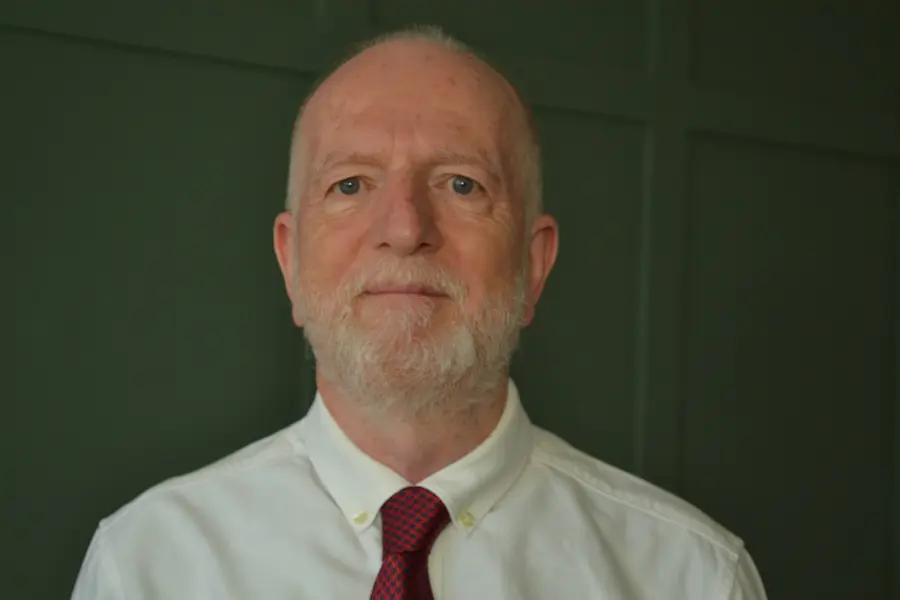
Gerry McMahon is an acknowledged national expert in People Management. He has over 35 years’ experience - as a workplace investigator (on bullying/harassment/ disciplinary/dismissal/grievance issues), trainer, negotiator, facilitator, mediator, arbitrator and team builder - across a wide range of employment sectors. He is the M.D. of the H.R. training and advisory company Productive Personnel Ltd.
Gerry has also had an extensive range of books and articles published and been a columnist with the Industrial Relations News, Irish Times, Sunday Business Post, and Irish Independent and expert commentator on H.R./Employee Relations for R.T.E. and TV3/Virgin. He has also served on numerous Legal Island and C.I.P.D. judging panels and is a Council member of the Irish Association for Industrial Relations.
Contact: Tel. 087-2471415; E-Mail: ppl1gerry@gmail.com



Introduction ⚓︎
In an era when a return to the workplace is back on the agenda, working time and breaks are protected via the provisions of the Organisation of Working Time Act and the new Code of Practice on the Right to Disconnect applies to all employees (incl. remote workers), this may be a good time to revisit and review your time management practices.
When it comes to ‘time’, there are many words of wisdom: ‘Time is money’; ‘Time lost is never found again’; ‘Time and tide wait for no (wo)man’; ‘Time is yours. It is the most precious of possessions’; ‘You will never find time for anything, you have to make it’; ‘If it wasn’t for the last minute, a lot of things would never get done’ and so on. But the ‘bottom line’ is that good time management means taking control over how you spend your time and making sensible decisions about the way you use it.
The Time Traps ⚓︎
Despite the proliferation of these ‘words of wisdom’, the reality for many is that too often precious time is wasted. This can happen because we:
- Do the things we enjoy first.
- Get high on the adrenaline fuelled by the last-minute rush.
- Procrastinate and dither – ‘to be or not to be’.
- Think that being busy is a way of life, so we take on more and more.
- Go around like a headless chicken, without clear priorities and associated plans.
- Allow interruptions, from others (e.g. ‘let’s have a chat’) and from ourselves (e.g. blithely surfing the net).
- Lack assertiveness, always saying ‘yes’ to the requests of others.
- Don’t use the ‘wasted spaces’ that arise whilst ‘waiting’.
- Forget that not everything has to be ‘perfect’.
- Attend non-productive meetings.
- Don’t know how or won’t delegate.
The fall-out from these poor time management practices often includes a failure to achieve your life goals, a damaged reputation, stress, accusations of incompetence, crisis management and frequently forcing others to wait (and fume!). The turnaround or conversion away from these poor practices requires acceptance of the fact that poor time management is a habit. And bad habits have to be broken, by the creation of good habits and perseverance to maintain them. The most effective time management habits are:
1. Value Your Time
Time is a scarce resource. If you’ve only one life, it’s important to maximise the use of time to dovetail with your goals in life. Putting a premium on time is an important change to make, but when it happens, you’ll never again waste a minute. In life, we only get one chance with our time – that is, you can’t go back and re-use the last 5 minutes. It’s gone for good! That’s why ‘productive people’ ensure that they ‘wait productively’, using their waiting time to catch up on their reading, emails, text messages etc.
2. Priorities – What’s Important?
Every now and then ask yourself: Am I making the best use of my time? If not, stop what you’re doing and start work on a project that will allow you better use of your time vis-à-vis your life goals and priorities. That is, confirm your goals or priorities and distinguish those tasks that are urgent from those that are important. Urgent tasks have an immediate impact. Important tasks have a significant impact. So, it makes sense to make and prioritise a ‘to do’ list of your tasks as follows:
- Urgent and important tasks
- Urgent (but do them efficiently)
- Important. This ranking helps ensure that all of your tasks are listed in an appropriate order and you don’t have to keep asking ‘what’s next?’.
3. The ‘To Do’ List
When you start a day’s work, before checking emails, give an hour to the most important thing on your ‘To Do’ list. Even if you can’t finish the task in an hour, you’re more likely to go back to it and to finish it now that it’s started. And you’ll have the ongoing satisfaction that the task has been started, rather than fretting about a looming crisis! This works best if you revisit the ‘To Do’ list the night before, so that when you start work, you’ll already know what the most important task of the day is. Of course, as noted above, it’s important that this list aptly reflects your goals and priorities (e.g. project deadline, work quotas, career advancement, health, fitness, family relationships, financial).
4. Do It Once and Do It Now
To minimise time wasted through dithering and procrastination, try the '3 D' rule of: Do it, Dump it or Delegate it. That is, try to ensure that you never handle a piece of paper twice. So, avoid transferring it to your 'to get to' pile - Handle it NOW! As for e-mails, the same rule applies, so that you either action it, ignore/delete it or forward it to an appropriate person.
Checking your e-mail on a pre-determined schedule also helps to ensure that you’re not constantly distracted by the ‘online addiction’, thus allowing you to devote your full attention to the priority task(s). Otherwise, you may spend the whole day dealing with e-mails!
5. Ask What Their Secret Is
Ask the most efficient person you know what their secret is and how did they develop these effective time management skills and practices. Then see if any of these can work for you.
6. Be Assertive with Time And People
Like your health, your time is an all-important asset. So, set up some boundaries around it. For example, if you are caught somewhere for what looks like it’s going to be a lengthy conversation, ask that a meeting be arranged to discuss the matter(s). And don't allow co-workers to infringe on your home time. That’s what the aforementioned new Code of Practice on the Right to Disconnect (pdf) - and answering machines - are for! Or if someone is late for an appointment with you and hasn't contacted you - give them 15 minutes past the appointed time and then move on. Remember that it is up to you as to how exactly you allow other people to use your time. And whenever possible and appropriate be prepared to delegate – that is, don’t be afraid to let go.
7. Have ‘Good Times’ In The Day
We all need something attractive to look forward to, so ensure to build these appealing activities into your day. You don't want to be heading for life’s departure lounge when you realise that you’ve missed out on a lot of ‘good times’. So, log in these exciting activities, with an eye on your goals and priorities (e.g. family activities, health/fitness pursuits, hobbies).
8. De-Clutter
Take some time to remove the clutter from your life. The more you simplify your personal space, the more time you will have. Clutter saps your energy and allows you to waste time on non-valuable tasks (e.g. looking for the missing form).
9. Maximise Your Peak Times
With an eye on the body clock, you know there are times when you’re normally ‘good to go’ and times when you’re normally ‘ready to drop’. So, it makes sense to schedule the most important - or consequential and demanding – tasks, for that part of the day when you’re at your best and your energy levels are at their highest. If possible, find a ‘hideaway’ for doing the most ‘heavy duty concentration’ tasks. And with remote work more common than ever before, it should be possible to secure authorisation to work from home. This plan can also be applied to a large difficult project, as you break it down into manageable chunks and schedule each chunk for your ‘good to go’ time slots.
10. Be Slow for Good Effect
Remember that a good time manager actually responds to some things more slowly than a bad time manager. For example, if doing a high priority or important task, you shouldn’t be checking or answering emails.
Recalling the ‘words of wisdom’ associated with ‘time’ at the introduction to this article, hopefully you can now add: ‘The bad news is time flies. The good news is I’m now the pilot’. So, enjoy the trip and hopefully you’ll arrive early with time to kill!
Continue reading
We help hundreds of people like you understand how the latest changes in employment law impact your business.
Please log in to view the full article.
What you'll get:
- Help understand the ramifications of each important case from NI, GB and Europe
- Ensure your organisation's policies and procedures are fully compliant with NI law
- 24/7 access to all the content in the Legal Island Vault for research case law and HR issues
- Receive free preliminary advice on workplace issues from the employment team
Already a subscriber? Log in now or start a free trial
